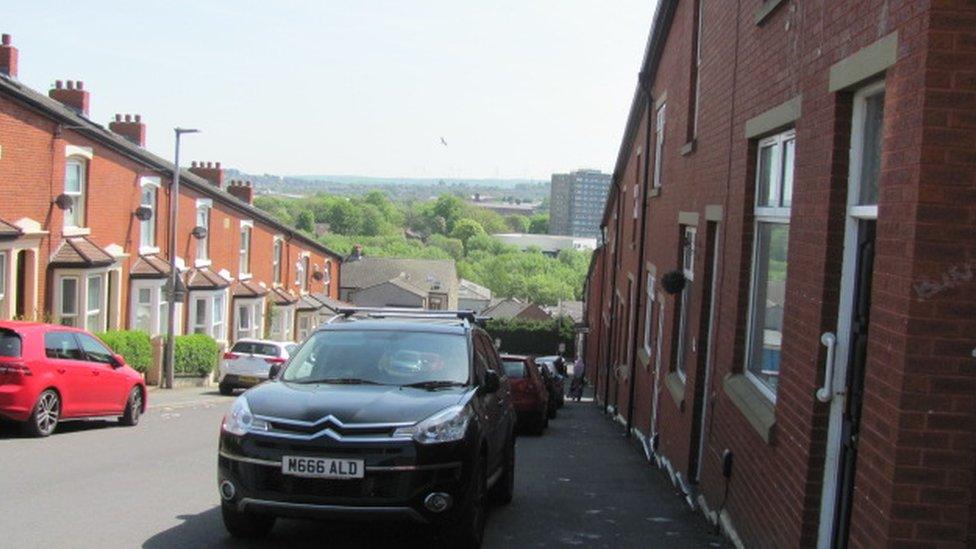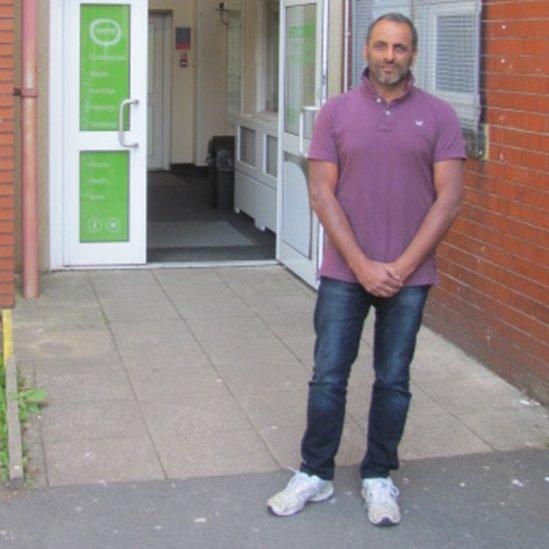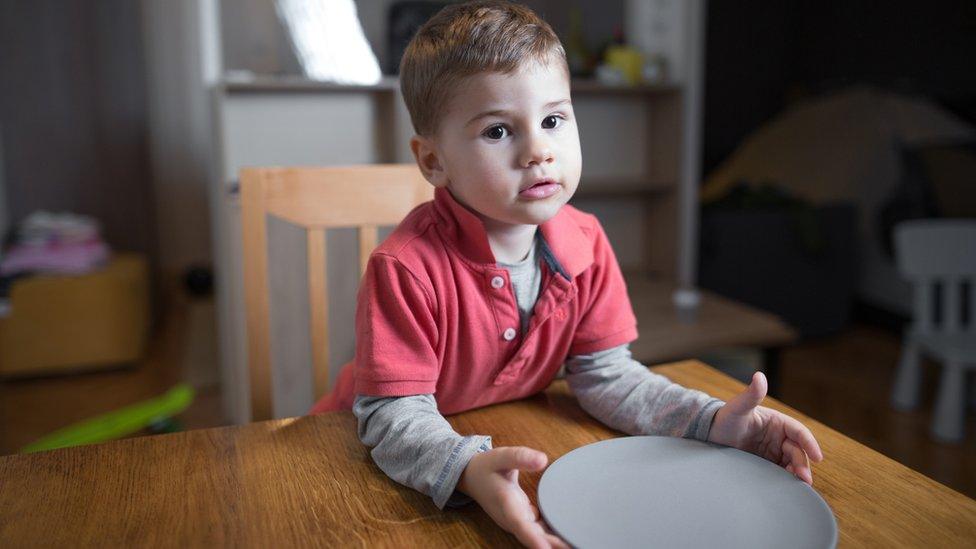Blackburn: What is the ward with Britain's highest child poverty rate like?
- Published

The red-brick terraced houses of Bastwell follow the steep incline of a hill above Blackburn.
Well-kept but not fancy, these quiet streets seem typical of a town in north-west England.
But an alarming statistic is hidden behind the neat brickwork, two in every three children in this ward is estimated to be living in child poverty.
On first glance, the notion seems fanciful. There are no grubby kids kicking cans around the streets; no derelict cars or dumped sofas messing up the neighbourhood.
The many businesses in the local Bazaar shopping mall appear to be doing well.
There are not scores of unoccupied premises or boarded-up windows.
Glittering saris hang in a shop window, Indian sweets and cakes are stacked up in neat rows, and the Spar grocers seems to doing good business, even though it is Ramadan. The poverty seems invisible.
But on closer inspection, there is very little for sale here that is not absolutely necessary.
There are food, groceries and international parcel services, but there is not much in the way of luxury - except for the sequinned saris.
You can get a cheap haircut or a Turkish wet shave, but a cup of posh coffee is out of the question.
Abdul Mulla, who has been working with deprived communities in Blackburn for 30 years, says: "The issue with the BAME community is about them not wanting to ask for help."

Abdul Mulla outside the Community Centre
Mr Mulla, who is head of the charity Healthy Living, based at Bastwell's Bangor Street Community Centre, says: "If we don't help, there is still support from within the community."
One woman, who did not give her name, says: "I've lived here since the year dot and I don't know who's struggling and who's not.
"They're not going to tell me they're struggling. They have to save face.
"We Asians have to save face, you see.
"Someone might have a nice car, but you wouldn't know if they had it on credit."
Zero-hours contracts
Mr Mulla, or Abi as he is known, is surprised that Bastwell tops the child poverty charts after all the work his and other charities have done with the community over the years.
He says it is not so much about worklessness, but about low pay, zero-hours contracts and unsociable hours.
"If a lot of families in a ward are on tax credits to support their income, then it is a low-income area," he says.
However, the Loughborough University research suggests that hard-won child poverty improvements are now being reversed.
Abi explains how support service cuts have had a big impact.
All the neighbourhood youth centres have shut and numerous small charities closed overnight when council funding began to be axed in 2010, he says.
The local children's centre has become a private nursery, he adds.
"It isn't so easy for people in the community to build their own support networks now," he says.
"Youth workers who have been here for many, many years have moved somewhere else.
"If new workers come, they don't know the kids and it's the longevity and the continuity that is a crucial part of any youth work."
When services are lost, the relationships and the trust that has been built up over many years are lost too, he explains.
- Published15 May 2019

- Published14 April 2019
